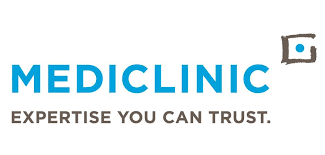Around the world, healthcare is a business vertical like any other. Hospitals exist and operate within the healthcare arena with the ethical purpose of providing the best possible healthcare to the patients, while at the same time being able to generate profits in order to pay salaries, satisfy shareholders, and continue with the maintenance and improvement of standards and medical procedures.
The bottom line is that a hospital itself must be ‘healthy’ from a business perspective to be able to continue providing the best medical care possible to its patients.
Against this background, it can be understood that project portfolio management (PPM) is a critical part of the modern hospital group in order to organise the plans, schedules and resources of multiple projects at once. An organisation’s project management office (PMO) should be a pivotal part of assisting healthcare companies to execute their declared strategies.
Mediclinic partners with Project Portfolio Office
Mediclinic Southern Africa operates a range of multi-disciplinary acute care private hospitals in South Africa and Namibia. The company chose to work with Project Portfolio Office (PPO) to assist in the positive transformation of its enterprise project office (EPO) and infrastructure project management capability (IPMC), using PPO’s secure, cloud-based PPM tool.
Having been chosen as the winning contender out of eight companies that took part in the Request for Proposal in 2017, PPO’s first step was to conduct an organisational maturity assessment for Mediclinic, in order to gather useful information around the company’s entire project management ecosystem, including employees, culture and structure, all of which have an impact on the organisation’s portfolios and projects.
“Project Portfolio Office included a formal PPM maturity assessment as the first phase in the implementation for two key reasons,” clarifies Dalene Grobler, PPM executive consultant at Project Portfolio Office. “Firstly, we have learned over the years that having a good understanding of the project portfolio management maturity of an organisation is critical to ensure the solution is fit-for-purpose.
“Secondly, because we value our clients and understand the challenges that they deal with on a day-to-day basis, we don’t believe in just implementing the software and walking away. We make it our business to understand our client’s challenges, help them identify their strengths so they can continue to build on these and, more importantly, recommend areas they can improve on in order to deliver more successfully. This ensures a longer term, more sustainable implementation of the PPM technology.”
Conducting a formal maturity assessment to assist with achieving EPO aims
There are two main types of maturity assessments, namely those that focus on the PMO’s maturity, or those that are mainly focused on the broader organisational PPM maturity. Project Portfolio Office implemented the latter model, its full diagnostic assessment service, in order to provide a holistic examination of Mediclinic’s challenges and requirements.
Using the Portfolio, Programme and Project Management Maturity Model (P3M3®) model, Project Portfolio Office’s formal maturity assessment at Mediclinic looked at its delivery of projects, programmes and portfolios, as well as gauging the overall organisational maturity.
“It was important to follow a well-structured approach to ensure that our engagements with the various stakeholders were focused, value-adding and non-intrusive,” states Grobler. “The next step was to gain a good understanding of how projects should be executed, with a focus on understanding the project methodology, guides, processes and tools in place.
“We then requested a sample of three representative projects, to establish how these projects were actually using and applying the existing practices. Finally, key stakeholders – such as C-suite executives, project sponsors, support functions, team members and practitioners – were interviewed to understand what was working and what wasn’t.”
Delivering a roadmap to success
The assessment process at Mediclinic was completed within approximately six weeks, and was followed by detailed discussions on recommendations and priorities for improvement. “One of the critical points the maturity assessment highlighted was Mediclinic’s readiness for the implementation of a PPM tool, which was a welcome outcome. It also provided the organisation with valuable insights, as well as a consolidated view of the various challenges and expectations of the key stakeholders.”
“The maturity assessment and resulting improvement roadmap developed for Mediclinic focused, as a first priority, on the implementation of PPO (Project Portfolio Office’s PPM tool), providing an immediate uplift in maturity by ensuring that prescribed standards and practices were consistently applied as per the agreed project management framework,” Grobler continues.
Achieving excellent, award-winning results
Through the implementation of PPO, the Mediclinic EPO has achieved three main, interdependent outcomes, coined as the ‘EPO Triangle’. The triangle has provided the organisation with the following key benefits:
- Visibility – offering a portfolio view of business projects, making available project information on all projects to the EPO team members, and providing ease of project handover between project managers.
- Standardisation – ensuring collaboration on the EPO ways of working, the capturing of RAID elements in a standard format, as well as a standard look-and-feel for reporting.
- Discipline – encouraging the regular update of project information.
“Stakeholder relationships have also improved significantly”, says Grobler. “A major contributor here was the fact that the EPO was now in a position to provide richer content and context to project sponsors through reporting, leading to improved and enhanced decision making. It also created an improved sense of organisational commitment and drive towards PPM excellence within the team by establishing a culture of continuous improvement.”
In 2019, Mediclinic was named the runner-up in the second annual South African Project Management Office (PMO) Awards, a feeder into the Global PMO Awards.
“This came as the high point of an incredible five-year transformation journey,” says Michael Reynders, Mediclinic EPO manager: “Looking back at the EPO’s journey, our PMO was viewed by the organisation as an impediment, adding ‘red tape’ to processes instead of supporting and easing them. Now, we’ve become an integral part of the Mediclinic Southern Africa’s DNA.
“The maturity assessment was an integral part of the PPO implementation, as it allowed us to ensure that the features and functionality implemented were aligned to our organisational practices and maturity. It also provided us with an essential view of our strengths – as well as improvement areas – so that we could continue to grow to meet our customers’ expectations,” he adds.
For more information about Project Portfolio Office’s maturity assessment service, please click here.


